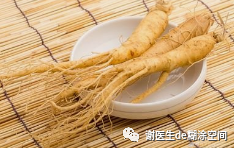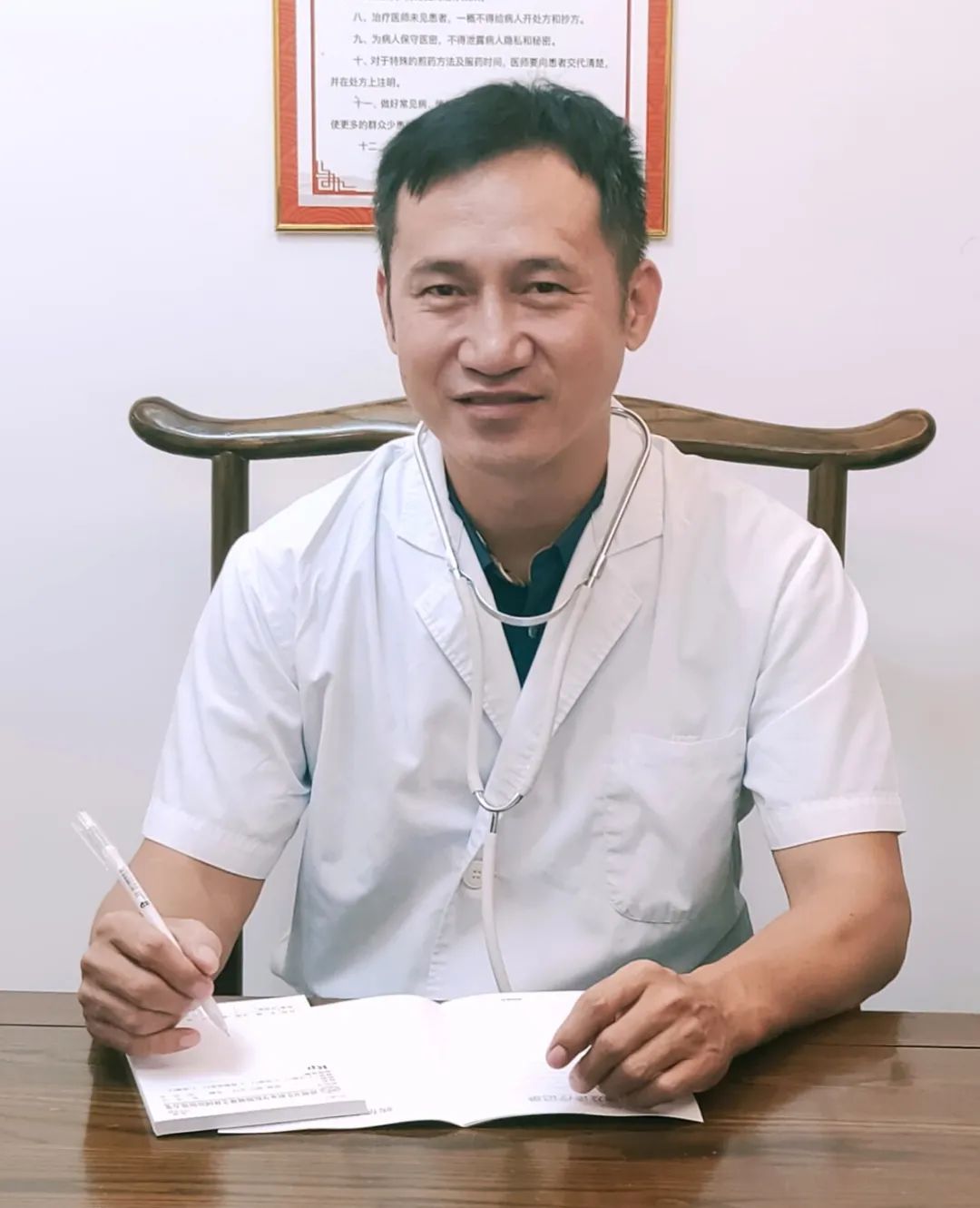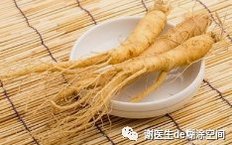Introduction: Mr. Tao Yufeng has compiled 23 clinical treatment references for “Ginseng” based on ancient texts, the experiences of medical practitioners throughout history, and his own clinical insights, which are worth learning and collecting.

I
Ginseng (Ren Shen), for those with pale, yellow, or dark complexions, indicates insufficient qi in the spleen, lungs, and kidneys, and can be used; for those with red or dark complexions, indicating strong qi and spirit, it should not be used.
If the pulse is floating and weak, large and slow, or weak and thin, or if there is a weak pulse with irregularities, these all indicate deficiency and can be treated with ginseng; if the pulse is tight, strong, and rapid, this indicates internal heat and excess, and ginseng should not be used.
II
Ginseng can enter all five organs and six bowels, reaching every meridian, not limited to the spleen, heart, and lungs, but also entering the liver and kidneys.
People often regard ginseng as a remedy for qi deficiency, neglecting its use for nourishing the liver and kidneys, which reflects a lack of understanding in medicine. When using ginseng to rescue from critical conditions, it is primarily to tonify the kidneys; if kidney qi is completely depleted, it is indeed difficult to rescue. However, if the kidneys are not entirely exhausted, ginseng is not necessary; if they are completely exhausted, ginseng must be used.
Ginseng has a predominantly yang flavor, and when used in small amounts, it tends to rise; when used in larger amounts, it tends to descend. However, when entering the liver and kidneys, it should be used in conjunction with Shudihuang (Rehmannia), Shan Zhu Yu (Cornus), and Niu Xi (Achyranthes) to effectively tonify qi and generate kidney water.
III
Ginseng does not assist fire, but it can assist yang qi. Although yin and yang are differentiated in qi and blood, in fact, qi also has yin and yang distinctions; yin and yang are interdependent, originally existing within qi. Ginseng assists yang qi in 70% of cases and assists yin qi in 30% of cases.
In the context of yin tonics, using ginseng in small amounts can generate yang qi, thus enhancing yang while nourishing yin; however, if ginseng is used in large amounts within yin tonics, it can generate yin qi, leading to an increase in yang while depleting yin. Therefore, when using ginseng to tonify yin, it should be used sparingly, but it is not entirely contraindicated.
In summary, the amount of ginseng used must be differentiated based on whether there is yin deficiency or yang deficiency. For those with yin deficiency, it is advisable to use ginseng sparingly within yin tonics; for those with yang deficiency, it is advisable to use ginseng abundantly within yang tonics.
IV
Ginseng has the ability to support the righteous and dispel evil; however, using it to attack evil should be approached with caution, considering the appropriate dosage and timing.
When evil first enters, it is advisable to use a small amount of ginseng as an assistant; when the evil is deep-seated, it is advisable to use a larger amount of ginseng as the main ingredient; when the evil is about to leave, it is advisable to use ginseng exclusively as the main ingredient.
When evil gathers, its qi must be deficient; using ginseng to attack evil can ensure success. However, if the evil is light, it is unnecessary to use ginseng; if the person is robust, it is also unnecessary to use ginseng; only when the evil is heavy and the person’s qi is deficient must ginseng be added to the attacking medicine, not to assist in the attack, but to replenish the deficiency, allowing the deficiency to drive out the evil.
V
Ginseng can replenish both qi deficiency and blood deficiency. When yang qi is exhausted, it can restore it from the realm of nothingness; when yin blood collapses, it can protect it from complete rupture. Its qi is strong and not acrid, thus it can stabilize qi; its flavor is sweet and pure, thus it can replenish blood.
Therefore, for all conditions of deficiency with fever, spontaneous sweating, dizziness, fatigue, fright, shortness of breath, facial pallor, diarrhea, headache, abdominal pain, loss of appetite, phlegm stagnation, coughing blood, urinary issues, and other symptoms, ginseng is essential.
Comparatively, ginseng is lighter in flavor and belongs more to yang, thus it is more effective for qi deficiency (6) than for blood deficiency (4); in summary, it is primarily a qi tonic. The reason blood deficiency cannot be neglected is that without qi, blood cannot arrive.
VI
For yin deficiency, the method of using ginseng is as follows: If yin deficiency is not accompanied by excessive fire, use ginseng as the main ingredient; if yin deficiency is accompanied by slight fire, use ginseng as an assistant; if yin deficiency is accompanied by excessive fire, temporarily avoid ginseng and use purely sweet and nourishing water-based medicines.
VII
In the “Shennong Bencao Jing”, ginseng is described in only thirty-seven characters, with no mention of warming and tonifying to restore yang. Therefore, Zhang Zhongjing used it to rescue fluids in cases of sweating, vomiting, and purging, and in all formulas for restoring yang, he did not add this soft and gentle herb, but instead emphasized the effects of ginger and Aconite.
VIII
Ginseng can also be used successfully on its own, such as in the Ginseng Decoction, which is a temporary measure and should not be relied upon as a standard practice.
When a person loses qi suddenly, loses blood in an instant, loses essence in a moment, and yang collapses overnight, other medicines may not be effective; it is necessary to use one to two taels or four to five taels of ginseng in a decoction to rescue them; otherwise, the yang qi will disperse rapidly and lead to death.
Once yang is restored and qi is circulating, it is urgent to use other medicines as an assistant to ensure it does not collapse again; otherwise, the cold and yin will press in, and unpredictable changes may occur.
It can be seen that ginseng must have supporting herbs to achieve success; it cannot be relied upon solely for guaranteed victory.
IX
Ginseng should be used in conjunction with other herbs for optimal success.
For example, to uplift qi, it must be combined with Sheng Ma (Cimicifuga), Chai Hu (Bupleurum); for harmonizing, it must be combined with Chen Pi (Citrus Peel), Gan Cao (Licorice); for strengthening the spleen, it must be combined with Fu Ling (Poria), Bai Zhu (Atractylodes); for calming palpitations, it must be combined with Yuan Zhi (Polygala), Zao Ren (Jujube Seed); for stopping cough, it must be combined with Bo He (Mint), Su Ye (Perilla Leaf); for resolving phlegm, it must be combined with Ban Xia (Pinellia), Bai Jie Zi (White Mustard Seed);
to reduce stomach fire, it must be combined with Shi Gao (Gypsum), Zhi Mu (Anemarrhena); to dispel cold and dampness, it must be combined with Fu Zi (Aconite), Gan Jiang (Dried Ginger); to dispel toxins, it must be combined with Huang Qin (Scutellaria), Huang Lian (Coptis), Zhi Zi (Gardenia); for food stagnation, it must be combined with Da Huang (Rhubarb), Zhi Shi (Bitter Orange).
When used for tonification, it tonifies; when used for attacking, it attacks, depending on the appropriateness of the combination and the balance of light and heavy.
X
For weak individuals, ginseng must be included in exterior-releasing medicines to enhance their efficacy, allowing for a strong expulsion of pathogens, which is entirely different from the intention of tonification. In exterior-releasing medicines, ginseng plays a significant role, allowing the exterior pathogen to retreat without contention.
From Zhang Zhongjing to the present, no formula has omitted ginseng; why do modern practitioners avoid using it? It is unknown that the misuse of ginseng leading to fatalities is due to its combination with warming tonics like Huang Qi (Astragalus), Bai Zhu (Atractylodes), Gan Jiang (Dried Ginger), Dang Gui (Angelica), Rou Gui (Cinnamon), and Fu Zi (Aconite), rather than its combination with herbs like Qiang Huo (Notopterygium), Du Huo (Angelica), Chai Hu (Bupleurum), Qian Hu (Peucedanum), Chuan Xiong (Ligusticum), Ban Xia (Pinellia), Zhi Ke (Bitter Orange), and Jie Geng (Platycodon) for harmonizing the exterior.
XI
Both ginseng and Huang Qi can nourish and benefit, indicating deficiency and damage, and can be used together to achieve results; however, ginseng primarily tonifies the original qi and regulates the center, while Huang Qi also tonifies the defensive qi and strengthens the exterior.
For internal injuries, with weakened spleen and stomach, reduced appetite, lethargy, fever with chills, vomiting, diarrhea, and fullness, weakness, and a weak pulse, the treatment should focus on tonifying the middle and benefiting qi, with ginseng as the main ingredient and Huang Qi as the assistant;
for exterior deficiency, with weak pores, spontaneous sweating, and gradual loss of yang, as well as ulcers consuming blood and pus, and all diseases of yin toxicity, the treatment should focus on solidifying the defensive qi, with Huang Qi used in greater amounts as the main ingredient and ginseng used in smaller amounts as the assistant.
XII
Ginseng is effective for treating shortness of breath, but it cannot be used with Sheng Ma to uplift qi; if replenishing the original qi of the lower jiao and draining kidney fire, Fu Ling should be used.
Some say ginseng can be used with Sheng Ma, and combined with Chai Hu, it can uplift and replenish; when used with Shudihuang, and combined with Fu Ling, it can draw down to the lower jiao and replenish the kidneys.
XIII
Ginseng combined with Dai Zhe Shi (Hematite) can direct the tonifying power of ginseng downward, allowing the rebellious qi and floating fire of the upper jiao to flow downward; it can also allow the true yuan qi of the lower jiao to be strongly replenished by ginseng, thus attracting the rebellious qi and floating fire of the upper jiao downward.
XIV
Ginseng combined with Long Chi (Dragon’s Teeth) treats restlessness; combined with Chuan Po (Perilla), it treats bloating in weak individuals; combined with Ge Gen (Kudzu), it treats prolonged illness with fluid stagnation, and thirst in the upper jiao; combined with Shan Zha (Hawthorn), it is effective for resolving stagnation and accumulation.
XV
Long-term use of small amounts of ginseng has health benefits.
From November 23, 1900, to September 28, 1901, Empress Dowager Cixi used to dissolve 1 qian of ginseng daily for health maintenance, continuously for 331 days.
Modern research shows that ginseng can invigorate the spirit, reduce fatigue, improve work efficiency, enhance immune function, and delay aging.
XVI
Ginseng combined with Lai Fu Zi (Radish Seed) can tonify without causing stagnation, while Lai Fu Zi combined with ginseng can descend qi and resolve phlegm without depleting.
For treating patients with esophageal obstruction and qi deficiency with phlegm blockage, this combination is beneficial for invigorating qi, resolving phlegm, and unblocking the esophagus.
XVII
According to the “De Pei Bencao”, it is said that “Ginseng combined with Su Mu (Sandalwood) treats blood stasis and wheezing.”
In clinical practice, these two herbs are often combined in formulas like Zhen Wu Tang, Sheng Mai San, and Ma Xing Shi Gan Tang to treat chronic obstructive pulmonary disease, pulmonary heart disease due to heart and kidney deficiency, with insufficient qi and yin, and concurrent lung heat stagnation, resulting in cough, wheezing, edema, and cyanosis of the lips, all of which can achieve satisfactory therapeutic effects.
XVIII
Ginseng combined with Da Huang (Rhubarb) is effective for treating blood conditions, particularly for treating epistaxis, often used in combination with Er Zhi Wan or Gui Pi Tang; for patients with deficiency and excess, this combination can be added to Si Wu Tang for enhanced efficacy.
It can also be used for bronchiectasis, pulmonary tuberculosis with hemoptysis, depending on the condition.
XIX
For severe conditions with mixed deficiency and excess, treatment should focus on gentle tonification and gentle purging, aiming to protect the stomach qi.
To treat the underlying deficiency, Jilin ginseng can be combined with Shi Hu (Dendrobium) to nourish stomach qi and yin, avoiding the use of Bai Zhu (Atractylodes), Shan Yao (Chinese Yam), and other tonics that protect the spleen.
XX
For those with excessive phlegm, if treatment for phlegm is ineffective, it is often due to insufficient middle qi that cannot facilitate movement; thus, even if they can eat, they cannot transform food, leading to phlegm accumulation and stagnation. It is essential to strongly replenish middle qi, as strong qi can facilitate the movement of phlegm, and ginseng is the first choice.
XXI
For treating uremia due to spleen and stomach failure, with turbid qi not descending, the use of Liu Jun Zi Tang with increased ginseng and Ban Xia, along with a small amount of Da Huang, combined with Zhen Wu Tang, can alleviate symptoms, prolong life, and reduce blood urea nitrogen, also showing good efficacy for stubborn vomiting.
XXII
For treating children with prolonged cough, wheezing, and chest tightness, use 1 part ginseng combined with 2 parts Zi Su (Perilla), decoct and drink, which is highly effective.
XXIII
Author’s experience: Before major surgeries, it is advisable to use 1.5 grams of wild mountain ginseng powder and 2-3 grams of San Qi (Notoginseng), taken twice daily with hot water for two days.
On the day of surgery, if unable to drink water, ginseng powder can be held in the mouth, allowing the saliva to moisten and slowly swallow. This method has shown significant effects in reducing bleeding during surgery, minimizing the need for blood transfusions, and promoting recovery.
Note: Please follow medical advice for specific treatments and medications! This article is excerpted from “Clinical Materia Medica”, authored by Tao Yufeng, published by the People’s Health Publishing House, March 2005.
Source: Xiao Xiangru Channel



Department of Traditional Chinese Medicine Acupuncture and Tuina: Xie Yibing

★ Associate Professor
★ Associate Chief Physician
Profile
Graduated from Fujian University of Traditional Chinese Medicine in 1990, with over 30 years of clinical experience.
Specialties
1. Traditional Chinese Medicine for Chronic Rhinitis and Cough: Utilizing rhinitis ointment and floating needle therapy to comprehensively treat various acute and chronic rhinitis, allergic rhinitis, and sinusitis. Also treating chronic cough, adenoid hypertrophy, chronic pharyngitis, and asthma.
2. Traditional Chinese Medicine for Yang Nourishing Acupuncture and Qi Guidance: a. Various constitution adjustments: treating women with yang deficiency, cold uterus, cold limbs, menstrual pain, headaches, infertility; treating qi and blood deficiency with symptoms of fatigue, easy to catch colds, prolonged illness, hair loss, etc.; b. Reducing turbidity and lowering lipids: treating abdominal obesity, primary hypertension (grade 1, 2), hyperlipidemia, gout, etc., and treating chronic urticaria, eczema, neurodermatitis, acne, etc.
3. Pediatric Tuina: treating children with colds, coughs, sore throats, loss of appetite, food stagnation, enuresis, diarrhea, torticollis, and other conditions.
4. Traditional Chinese Medicine for Pain: utilizing rapid effect muscle relaxation and pain relief techniques, floating needles, and buried threads to treat various acute and chronic soft tissue injuries, pain caused by degenerative changes, arthritis, spinal diseases, and related visceral dysfunction. Specializing in treating cervical spondylosis, headaches, dizziness, lumbar disc herniation, lumbar muscle strain, chronic gastritis with abdominal distension and pain, etc.

【Disclaimer】The images and text are sourced from the internet, and the copyright belongs to the original author. If there is any infringement, please contact us for removal!
Warm Reminder: This platform shares health-related images and information for reference, learning, and communication purposes only, and should not be used as a basis for medical diagnosis. Please use under the guidance of a physician if needed.

